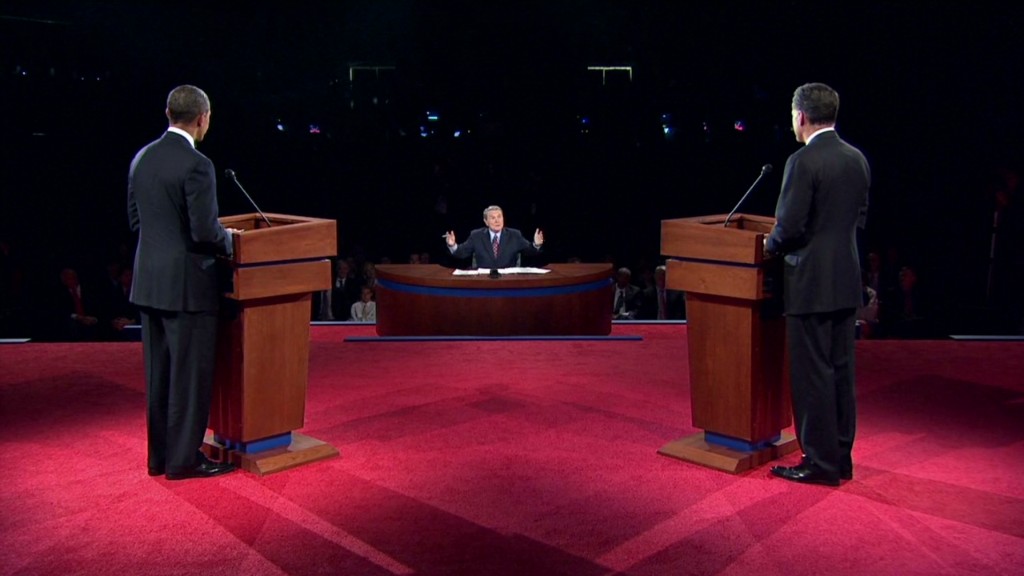
With just a month to go before Election Day, Mitt Romney has finally started to talk about more specific ways he could pay for his proposed tax cuts.
In an interview with a Denver TV station earlier this week, Romney offered what a campaign spokeswoman called an "illustrative example" for how to help pay for his plan, which would slash income tax rates by 20%.
Romney said limits could be put on how much a tax filer claims in itemized deductions. "As an option, you could say everybody's going to get up to a $17,000 deduction. ... And higher income people might have a lower number."
Capping itemized deductions alone would not be nearly enough to pay for Romney's tax plan, which the Tax Policy Center estimates could reduce revenue by roughly $500 billion a year.
For example, in 2009, the amount of tax savings realized by those who claimed itemized deductions was just $147 billion. Imposing a $17,000 cap would recapture only a portion of that money.
But a policy official with the Romney campaign told CNNMoney on Wednesday that a deduction cap would be just one part of a broader strategy to pay for Romney's tax cuts. Other elements would include limits on personal exemptions and the tax-free benefit workers get when employers pay for their health insurance.
And, the official said, the $17,000 is not a fixed number. It could change depending on where Congress and the president set the level for personal exemptions and the so-called health care exclusion. (Related: The candidates and your taxes)
The Romney campaign is also counting on economic growth to generate revenue to help pay for the tax cuts.

Without more detail, it's impossible to say how much revenue such a strategy would raise, and the Romney campaign didn't offer estimates. Nor is it possible to say which income groups would be most affected by such a pay-for strategy.
In the interview earlier this week, Romney also highlighted other ways his plan could be paid for that he has discussed in the past. But the deduction cap was a first.
And it came after months of criticism for not naming one tax break he would be willing to limit to help pay for his plan.
Related: How candidates would handle fiscal cliff
Each tax break in federal law has its fierce defenders and army of lobbyists. So it may be politically smarter to bypass the mud fights in Congress over whether to limit, say, the mortgage interest deduction or tax break on charitable contributions. Instead, tax filers could pick their deductions so long as they don't exceed a cap.
Romney isn't the first to propose such an idea. It's been kicked around in various forms by tax experts, including Harvard economist Martin Feldstein, who is an adviser to the Romney campaign.



